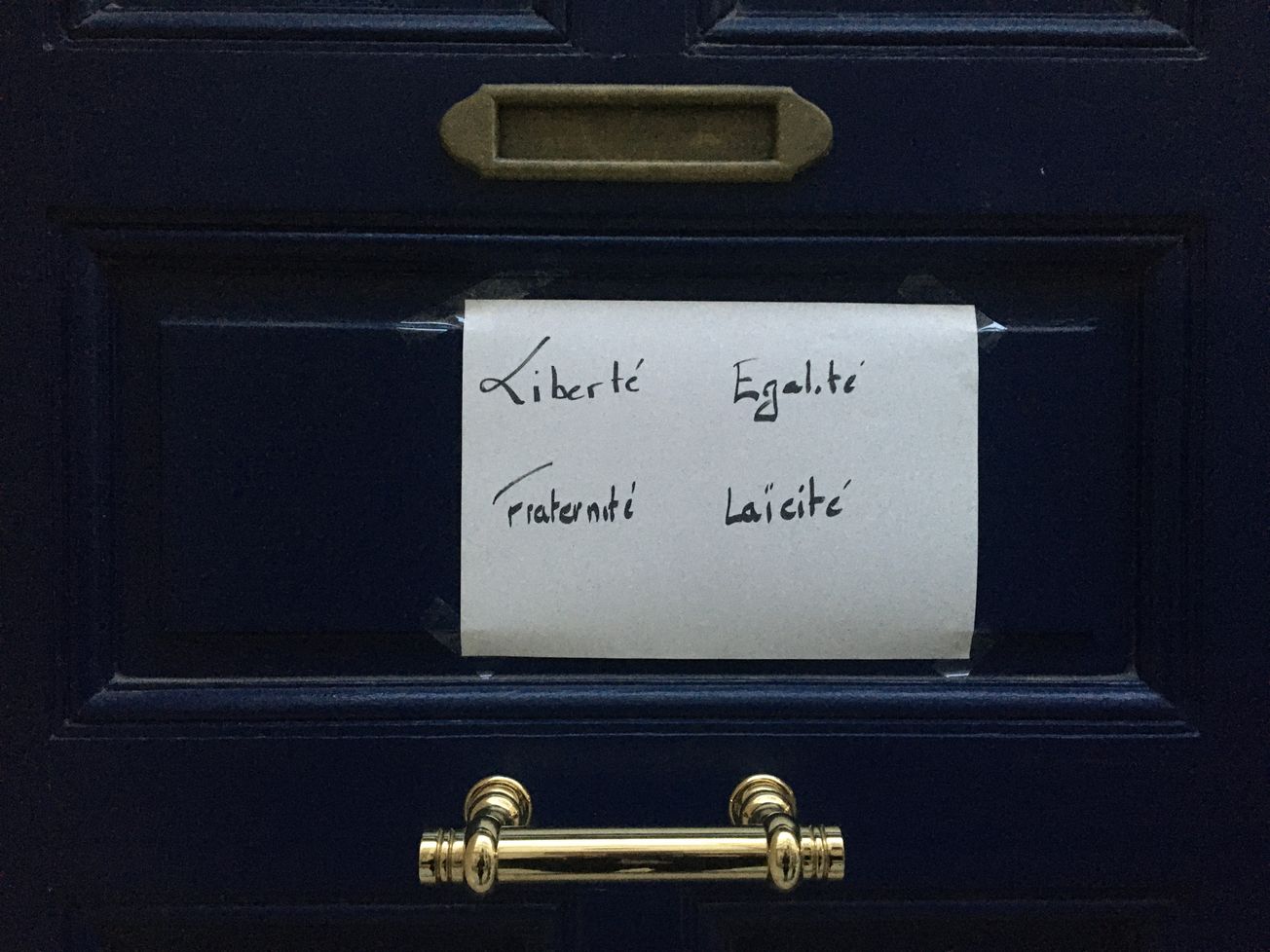By Xander Brett, Third Year, History of Art and French
The Croft Magazine // In his fifth Letter from Paris, Xander Brett discusses the killing of Samuel Paty and France as a secular nation.
25th October, 2020
“The lights will never go out.” So said President Macron during a national homage to the beheaded teacher Samuel Paty. Held at the Sorbonne on Wednesday night, he posthumously awarded Paty the Légion d’honneur, describing him as 'the face of the Republic'. Throughout the week, in cities across France, vigils were held in Paty’s memory. The motive of his murderer, an 18-year-old Chechen, was that Paty showed his class, during a lesson on freedom of speech, cartoons of the Prophet Muhammed. Abdoullakh Abouyedovich Anzorov was shot dead by police, but almost twenty people remain in custody. The local mosque has also been closed.
Paty’s murder made him a martyr for freedom of expression. More than the protection of free speech, however, Paty’s death ignited once more a passionate defence of French secularism (laïcité). Inscribed to law in 1905, laïcité returned religion to the private sphere. It’s controversial abroad, but it’s part of the national psyche here. To attack laïcité is to attack the Republic.

On Thursday morning, our classroom was transformed to a debating chamber. After we’d paid our respects to Paty’s life, there erupted a two-hour, unprompted debate. Happily, most of us were content to block out its monotony, though the very worst of British patronising and condescending was too loud to sleep through (there are three fellow Brits in my class). Not only was it clear my compatriots had no understanding of secularism, but that they had no desire to understand it either.
It seems strange to speak of British misunderstanding just a week after extolling our understanding of France. All things are relative, however. When it comes to laïcité, our two nations must agree to disagree. Laïcité to the French is the freedom to express through the freedom not to express. Indeed, it is the obligation not to express. A law of 15th March 2004 prohibits all religious attire from schools. Muslims may not wear a veil, nor Jews a kippa. Britain, by contrast, is not a secular nation. In our schools, we may wear what we please. That is to say, though our state is Christian, we are free to express religious beliefs of any sort in public. This, on the one hand, encourages diversity. On the other hand, it eliminates our freedom to mock. In France, laïcité permits journalists the freedom to caricature the Prophet Muhammed, to compare Muslims to letter boxes, or to portray Jews as moaners.
Such sentiments, as we know, are never published in Britain without serious condemnation. But, thankfully, this does not prohibit Britain standing in solidarity with France during times of trouble. Such violent attacks – however controversial the cause – cannot be tolerated by a democracy, secular or otherwise. What happened last week was shocking and appalling. It touched every Frenchman and woman, most particularly the President and his wife (herself a teacher). As they did after the Charlie Hebdo, Nice and Bataclan attacks, it is only right that the world stands with France. Today, we can all take pride in the words 'Je suis Samuel'.
Featured Image: Epigram / Xander Brett
Listen to Xander's weekly Burst Radio podcast 'Letters from Paris'.









